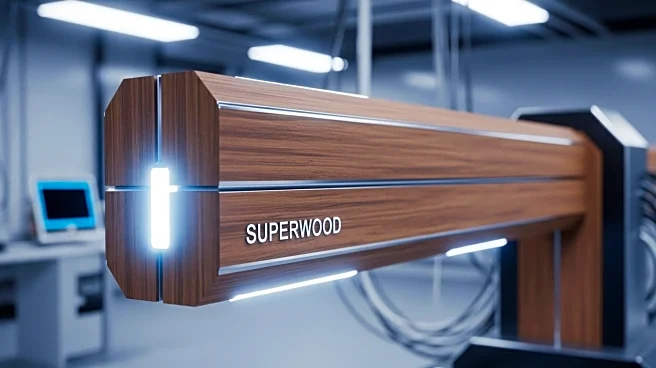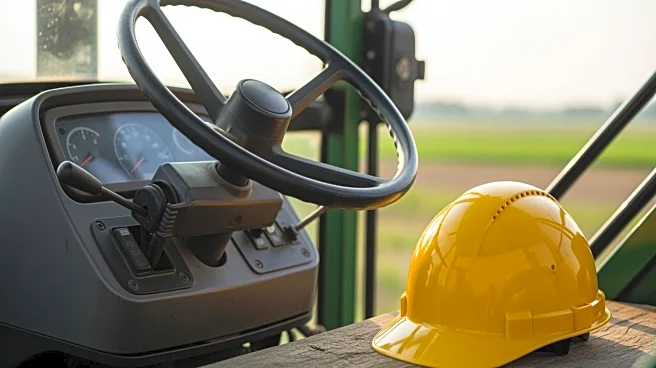What is the story about?
What's Happening?
InventWood, a Maryland-based company, has launched 'Superwood,' a new type of engineered wood that boasts a strength-to-weight ratio up to 10 times that of steel. Developed by material scientist Liangbing Hu, Superwood is created by chemically treating and compressing regular wood to enhance its natural cellulose. This process results in a material that is significantly denser and stronger than traditional wood, making it suitable for various construction applications. The company plans to initially focus on external uses like decking and cladding, with future applications in furniture and building construction.
Why It's Important?
Superwood's introduction could transform the construction industry by offering a sustainable alternative to steel and concrete. Its high strength and lightweight properties make it ideal for earthquake-resistant structures and faster construction processes. Additionally, Superwood's environmental benefits, such as lower carbon emissions compared to steel manufacturing, align with global efforts to reduce the carbon footprint of building materials. As timber construction gains popularity, Superwood could play a crucial role in advancing sustainable building practices.
What's Next?
InventWood aims to scale up production and expand the use of Superwood in various applications, including internal building components and furniture. The company is working on reducing manufacturing costs and carbon footprint to make Superwood competitive with steel. As the construction industry becomes more familiar with engineered timber products, Superwood could see increased adoption, potentially leading to more timber-based buildings and innovative architectural designs.
Beyond the Headlines
The development of Superwood highlights the potential for engineered materials to address environmental challenges in construction. By storing CO2 in its biomass, Superwood contributes to long-term carbon storage, offering a sustainable solution for urban development. The material's ability to replace metal fasteners and joints in furniture could lead to more durable and eco-friendly products, further promoting the use of renewable resources in manufacturing.















